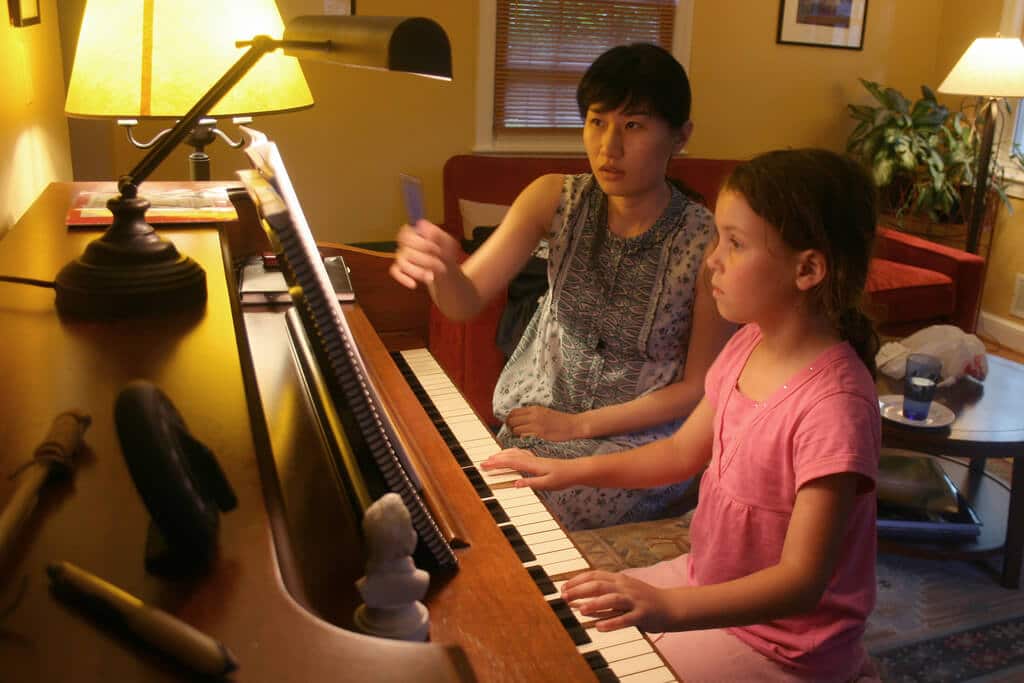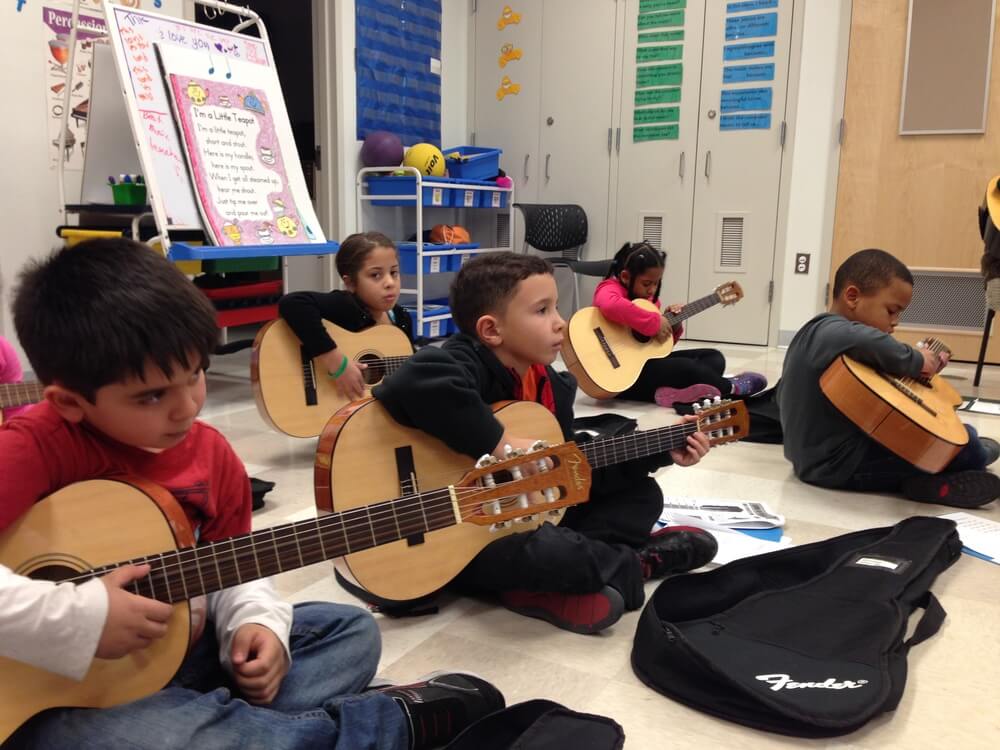Learning to play a musical instrument may be one of the best things you ever decide to do. Whether you aspire to perform, play for a living or just want to have a bit of fun in your spare time, the joys of learning an instrument can be quite literally endless.
Many parents encourage their children to learn an instrument, and for very good reason. Some studies have revealed that musical training has very positive effects on the brain, both as a child and as an adult. Indeed, studying music has positive effects on memory, use of language and various other aspects.
Although there are lots of materials available online, there is definitely still an argument to made that the best way to learn is with instruction from a qualified and experienced tutor.
This is especially true if you are looking to study academically or follow specific curriculum courses.
As a special feature for the UK Music Teachers Facebook group, we’ve put together a handy guide for anyone thinking of taking lessons and what to look for in a potential music teacher.
DBS Check
Especially important if you are looking for a tutor for your child, a qualified music teacher will always have undergone a criminal records check, and have the relevant documentation.
If you are going through a private music school, tutors will almost certainly have undergone a background check to be employed, but if you have any concerns the school should be able to give details of its safeguarding policy upon request.
Style/Genres
While most tutors will be able to provide a comprehensive education that will cover most genres and styles, if you are looking to learn a very specific style of music (such as flamenco/classical guitar or opera singing) it’s worth making sure that your teacher is equipped to be able to tutor you in that style.
Most teachers will ask potential students about their favourite bands/artists and what kind of music they are into, and it’s at this point that you should make a call as to whether the teacher is right for you.

Experience
There is nothing wrong with asking any potential tutor about their relative experience – what bands have they played in? Do they have any records out that you can listen to? What else have they done musically? How many other students do they have?
Obviously you don’t want to make anyone feel as though they are being interrogated, but if a quick Google search doesn’t suffice, then there is nothing wrong with asking questions.
Curriculum
A very important aspect to your potential studies is what material you will be using. There are various courses available including Rock School and ABRSM. However, it’s entirely possible that your tutor has their own syllabus and way of doing things.
If you are looking for an academic qualification (or something you can add to a CV) then studying with a tutor who teaches a recognised course would be preferable.
However, if you’re more open minded with your studies and prefer a more practical approach, then a tutor’s specifically devised course will be more tailored to you.
Instruments and equipment
While it is always preferable to own your own instrument from the very beginning, some tutors may be able to lend you one during your initial lesson or lessons.
This will be particularly true of private or charity music schools. If you are looking for advice on buying a second hand instrument, feel free to check out our blog with specialist advice for buying online.

Price & Trial Lesson
It sounds obvious, but tutors will charge differently based on their experience and popularity. If you’re a more experienced player and looking for specific tuition from an expert in a certain style, you may have to be prepared to pay more.
Many tutors will offer a discount for those willing to “bulk’ buy groups of lessons.
Many tutors will offer a “taster lesson” or a one off lesson for free/discounted price. It is always worth asking this, as it’s an especially good way to work out if your tutor is right for you.
Sit In
If you are arranging lessons for your child, you should always be allowed to sit in on the lesson if you want to see what your child is learning. That said; remember that doing this too often can be a little overbearing for both the tutor and the student.
Finally… Don’t rush the decision!
Choosing a music teacher can be a lengthy process, but for good reason. This can represent quite an investment of both time and money. If you don’t think a particular tutor is right for you, then don’t be afraid to say so.
For teachers looking for advice please read our complete guide for music teachers.
If you are looking for an instrument tutor or vocal coach, why not try Last Minute Musicians new Facebook group UK Music Teachers or visit our sister website Music Tutors Online:

If you have any more tips for music students we’d love to hear from you in the comments below!
Share this:



















